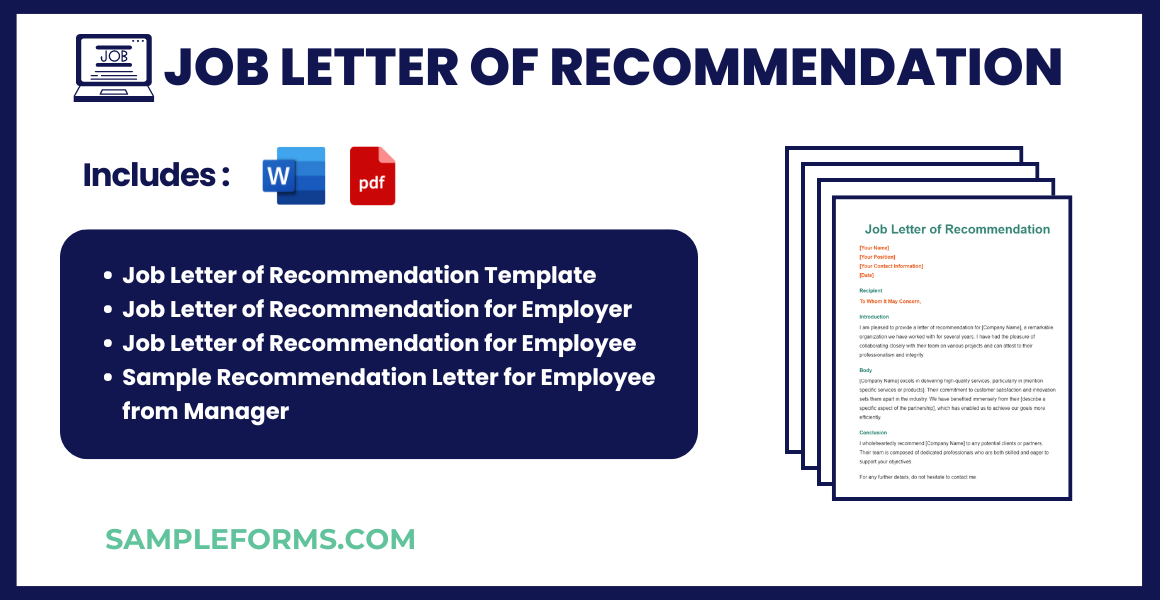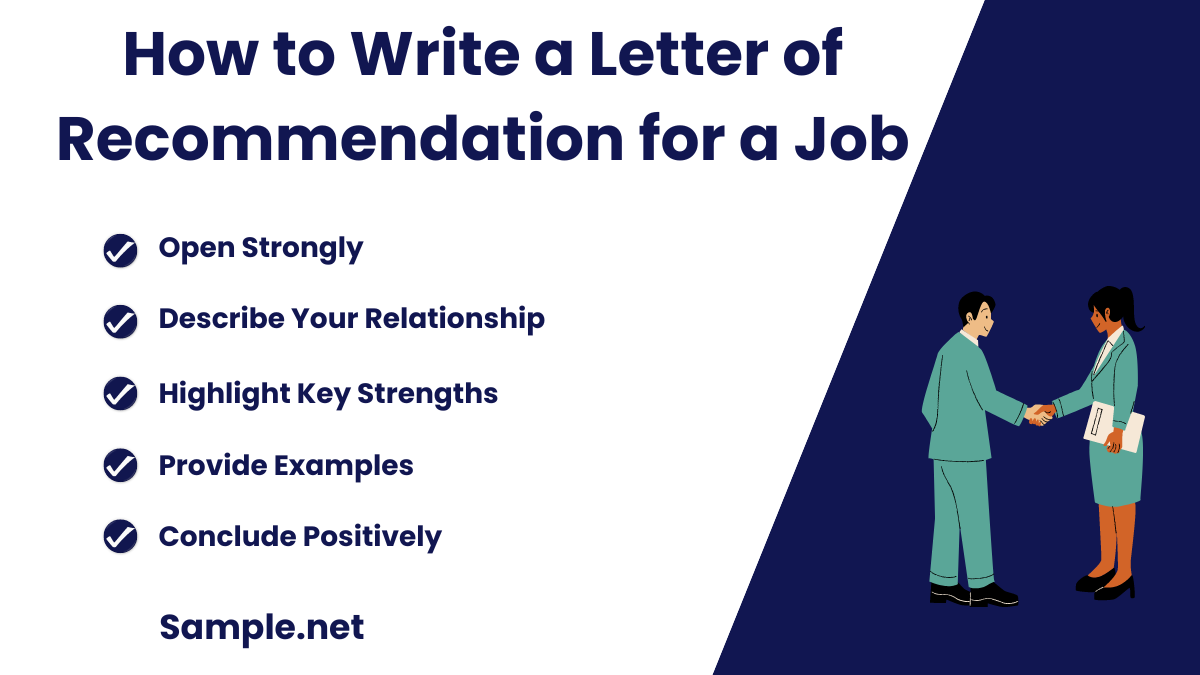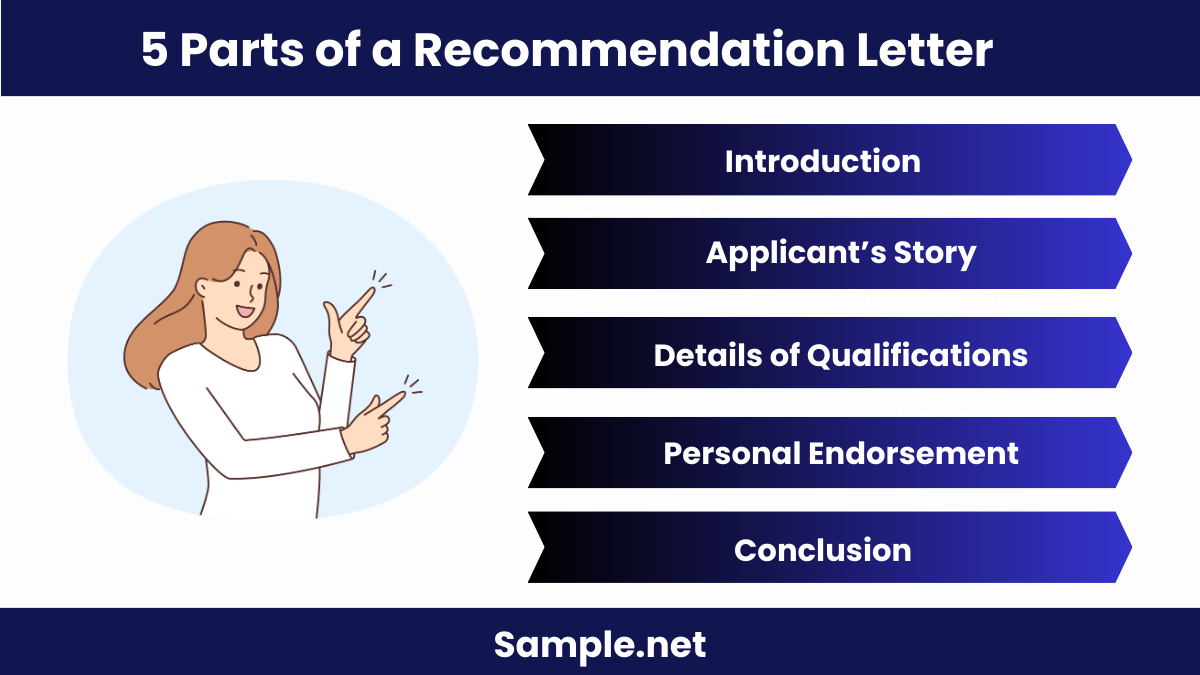Job Letter of Recommendation Samples
-
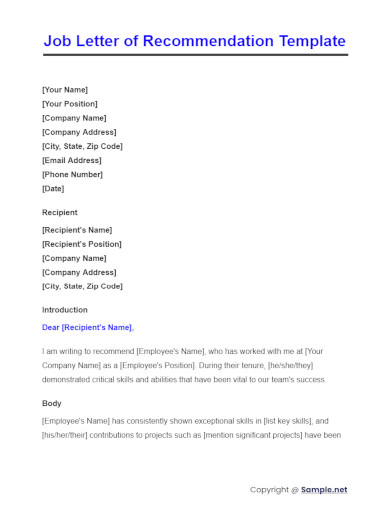
Job Letter of Recommendation Template
download now -
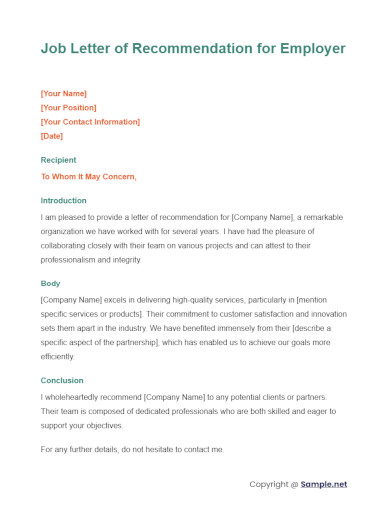
Job Letter of Recommendation for Employer
download now -
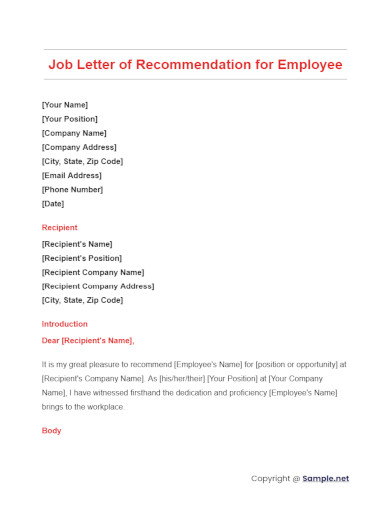
Job Letter of Recommendation for Employee
download now -
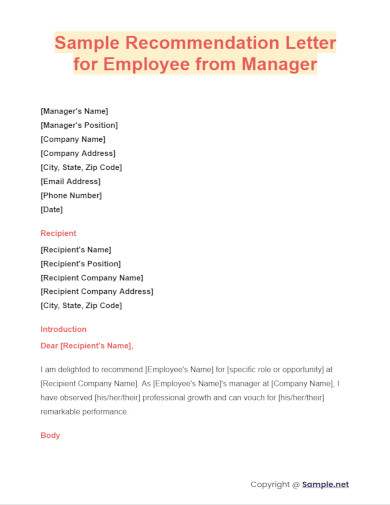
Sample Recommendation Letter for Employee from Manager
download now -
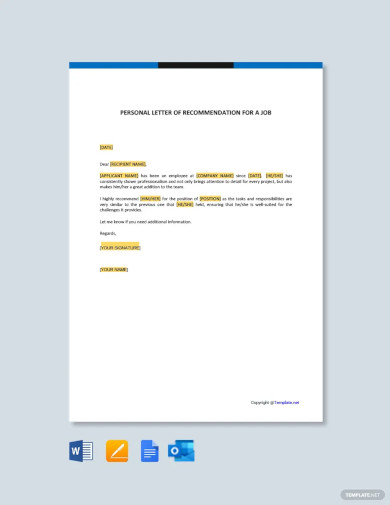
Personal Letter of Recommendation For A Job Template
download now -
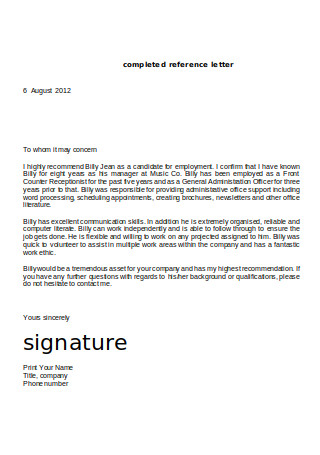
Completed Reference Letter
-
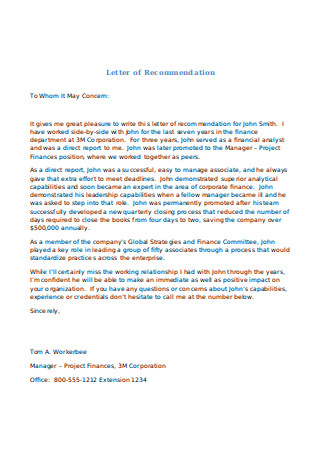
Letter of Recommendation for Position
-
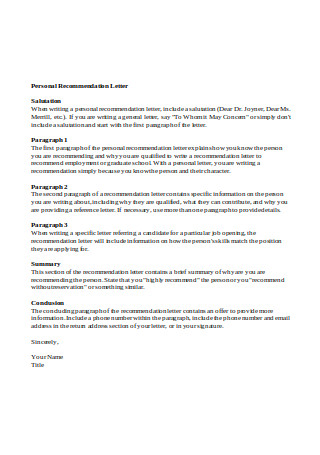
Personal Recommendation Letter
-
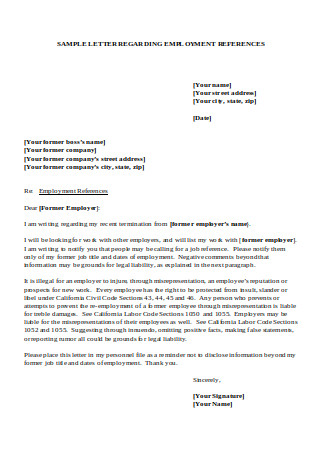
Sample Letter of Employment Reference
-
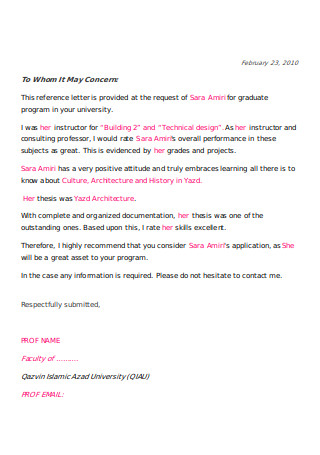
Recommendation Sample
-
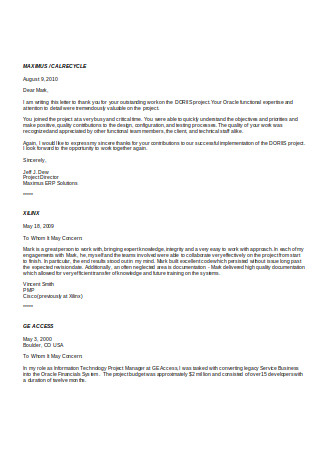
Recommendation Letters from Clients
-
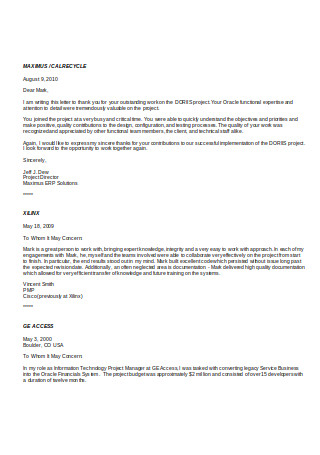
Recommendation Letter Request Form
-
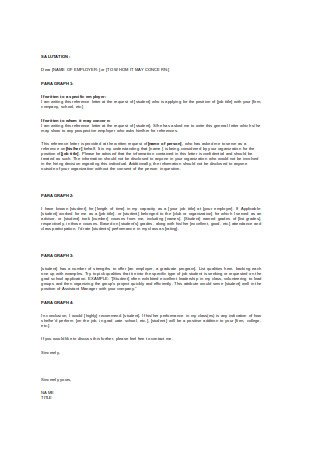
Basic Letter of Recommendation
-
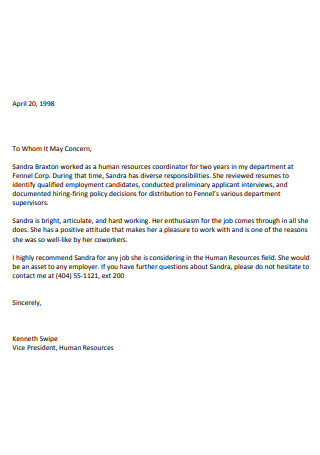
Employer Recommendation Letter
-
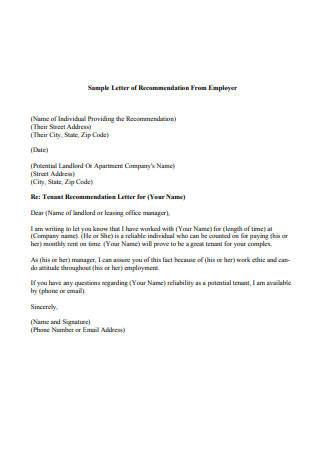
Letter of Recommendation From Employer
-
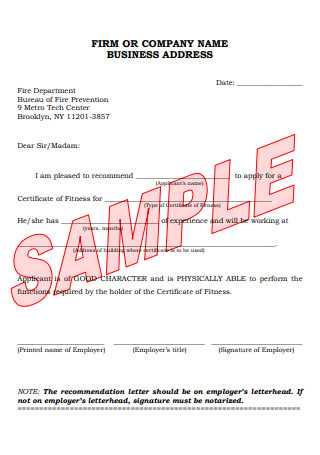
Recommendation Letter on Employer’s Letterhead
-
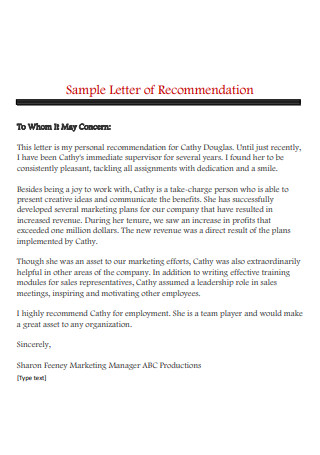
Sample Letter of Recommendation
-
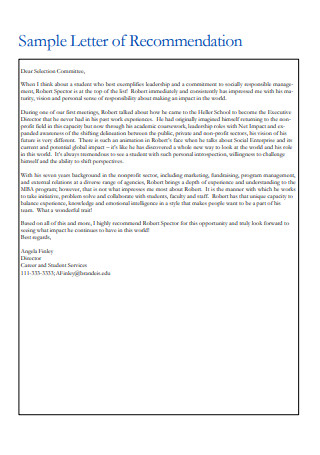
Sample Letter of Recommendation Format
-
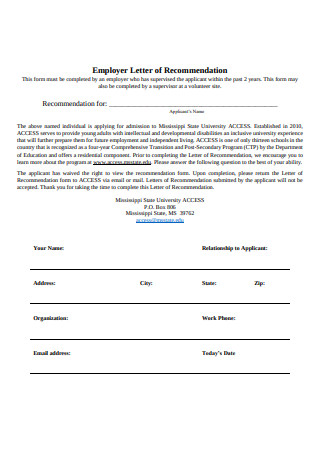
Employer Letter of Recommendation
-
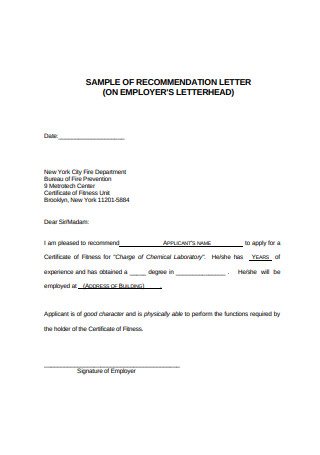
Format of Recommendation Letter
-
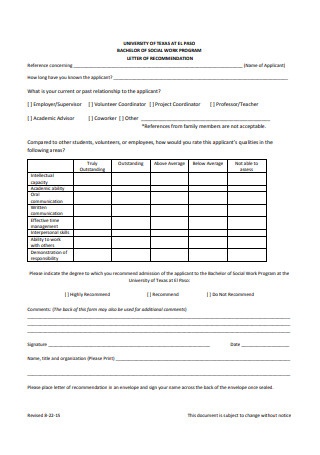
Job Recommendation Letter from Supervisor
-
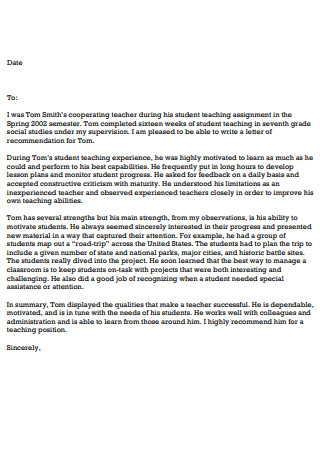
Simple Recommendation Letter
-
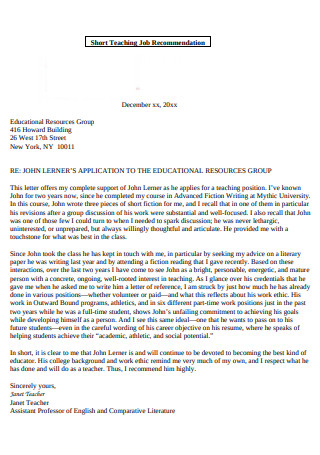
Short Teaching Job Recommendation Letter
-
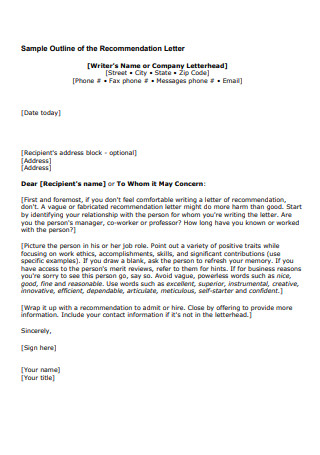
Sample Outline of Recommendation Letter
-
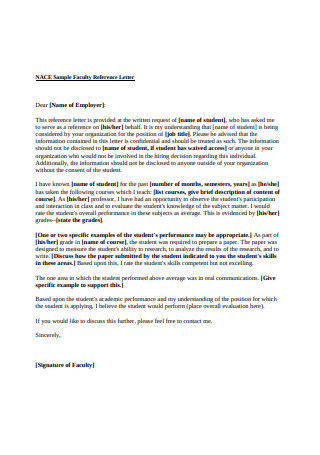
References and Recommendation Letter
-

Letter of RecommendationSupport
-
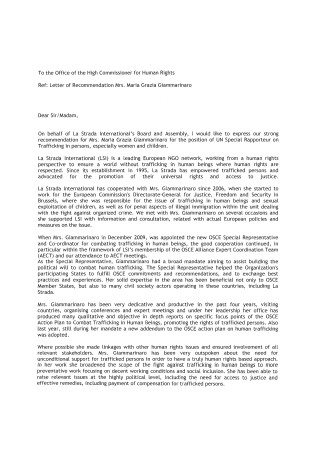
Formal Letter of Recommendation
-
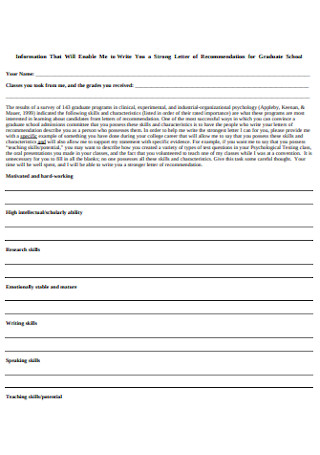
Requesting a Letter of Recommendation
-
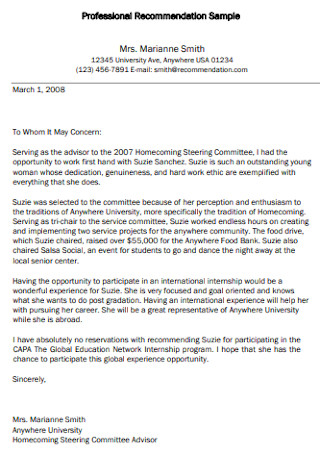
Professional Recommendation Sample
-
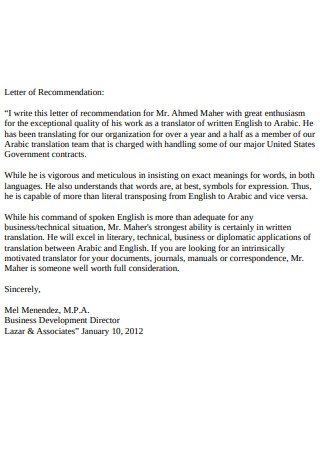
Printable Letter of Recommendation
FREE Job Letter of Recommendation s to Download
Job Letter of Recommendation Format
Job Letter of Recommendation Samples
What is Job Letter of Recommendation?
The Types of Letter of Recommendation
How to Make a Job Letter of Recommendation
The Do’s and Don’ts of a Job Letter of Recommendation
How to Write a Letter of Recommendation for a Job?
Types of Employee Letters of Recommendation?
What are the 6 Details That Should be Included in a Letter of Recommendation?
What Not to Say in a Letter of Recommendation?
How Do You Write a Powerful Letter of Recommendation?
What are the 5 Parts of a Recommendation Letter?
What Strengths Should Be Included in a Letter of Recommendation?
What to Write in a Job Recommendation Letter?
How to Start a Recommendation Letter?
What Makes a Recommendation Letter Stand Out?
What are Three Important Things to Mention in a Letter of Recommendation?
What Does a Weak Letter of Recommendation Look Like?
What is a Mediocre Recommendation Letter?
What is the Best Wording for a Recommendation?
Download Job Letter of Recommendation Bundle
Job Letter of Recommendation Format
Header
- Date: The date the letter is written.
- Recipient’s Information: Full name and address of the recipient.
Introduction
- Opening: Formal greeting and introduction.
- Relationship: State how you know the person and in what capacity.
Body
- Qualifications: Highlight the candidate’s key qualifications and skills.
- Achievements: Describe significant achievements or contributions made by the person.
- Personal Qualities: Discuss the person’s personal qualities and work ethic.
Conclusion
- Recommendation: State your overall recommendation.
- Contact Information: Provide your contact information for follow-up.
Closing
- Signature: Your signature.
- Name and Title: Your printed name and job title.
What is Job Letter of Recommendation?
A job letter of recommendation is a written endorsement of a person’s professional capabilities and personal qualities. This letter helps potential employers understand the candidate’s background, work ethic, and skills from a third-party perspective. It’s typically requested by job applicants and written by a former supervisor, colleague, or mentor who can provide credible insight into the candidate’s abilities and achievements. The letter should be formal and informative, offering a comprehensive view of the applicant’s suitability for the position.
“Total nonfarm payroll employment rose by 164,000 in July, and the unemployment rate was unchanged at 3.7 percent.” (Source: Bureau of Labor Statistics)
“Individuals born in the latter years of the baby boom held an average of 12.3 jobs from ages 18 to 52, with nearly half of these jobs held from ages 18 to 24.” (Source: Bureau of Labor Statistics)
The Types of Letter of Recommendation
A job letter of recommendation is just one of the three main variations of this kind of document. The short but detailed list below should be more than enough to cover the scope of all the variants.
How to Make a Job Letter of Recommendation
Those who have to make a job letter of recommendation need not worry about any lack of experience. The process is simple enough and below are the set of instructions that you can follow to successfully create a document for the benefit of a connection that wishes to make you a reference and is requesting for a letter. Take a look at each one and see how quick and easy the whole process can be. You should also take a look at our Personal Letter of Recommendation
Step 1: Download a Template.
Although it is possible for you to start from scratch, an alternative is simply taking advantage of the resources you have at your disposal. By downloading a template, you can either use it mostly as it is or you can use it as your guide when it comes to the formatting and the layout. However, if there are specific guidelines that you need to adhere to when submitting your document, then a template can still be useful to you as a means of having something to base your letter off of. You should also take a look at our Fraternity Letter of Recommendation
Step 2: Begin with the Names, Physical Addresses, and Other Contact Details.
As with any letter, you need to identify who you are as the letter-writer as well as who the person or company the document is being addressed to. You may have noticed this as well if you chose to download a template as suggested in step one. On the upper-right corner is where you will place your name, your title, address, and email address. A bit lower and to the left would be all the same details of the person or company who will be on the receiving end of this letter of recommendation. You should also take a look at our Paralegal Letter of Recommendation
Step 3: Introduce the Person You Are Recommending.
Open things up with a simple greeting before diving headfirst into the introduction of the person you are writing about. Before you do this, it is imperative to have an in-depth discussion as to what information you are going to include in the letter’s content and what not to. As long as it is something the subject of the letter is comfortable with, and if it helps his or her chances of getting employed, then you are good to go. You should also take a look at our Physician Assistant Letter of Recommendation
Step 4: Discuss Your Relationship with the Subject and Qualifications He or She Possesses
To successfully recommend someone for a specific job, it is necessary to be aware of or have information that can help their case. This is something to discuss with the person beforehand. If possible, they can even provide you with a broad outline of what is to be included. To legitimize your letter even further, take the time to talk about how you know the subject, as well as the nature of your relationship. If you were a work superior or a former employer, then this is the time to acknowledge that. You should also take a look at our Letter of Recommendation for Graduate School
Step 5: Utilize Specific Examples to Illustrate the Skills of the Applicant Further.
Those who wish to keep things as brief as possible may opt to skip this step, but it is worth noting that using specific examples will work well if you really want to sell the applicant’s skills and qualifications for the job. As a work superior or colleague, you should be able to adequately paint the right portrait of the applicant as someone who has proven time and time again to be reliable and competent in the role that they are seeking. For example, the applicant might have been superb at creating sales letters. It does not have to be too long; just enough to get your point across. You should also take a look at our Excuse Letter
Step 6: Encourage Further Communication in the Last Paragraph
Before you wrap up your letter, you need to show that you are willing to not only verify what has been written but also to discuss the subject of the letter further. This is the part where you leave your personal or professional phone number in case the subject’s prospective employer decides to do his or her own background check. This is also helpful in the event that you forget to include important details in the letter itself. You should also take a look at our Authorization Letter
Step 7: Proofread and Check for Any Errors
Once you have finished the letter of recommendation, take some time away from it and come back to the document and reread what you’ve written. Editing something immediately after you finish is not advisable because your perspective of it would still be too fresh and close. Give it some time before returning to your work. Check not only on potential typos and the grammar but also on the information you have provided. Be sure that everything is accurate before sending it to the person requesting the letter. You should also take a look at our Consent Letter
The Do’s and Don’ts of a Job Letter of Recommendation
Even with a step-by-step set of instructions, there can still be ways for you or the one writing the job letter of recommendation to improve. Below are the many do’s and don’ts that you may want to look into. Each one is meant to hasten the process and make it easier to do overall. You should also take a look at our Formal Letter
The Do’s
Do take time to get the right writer
Getting the right letter-writer is an essential step for any letter of recommendation. The first thing to do would be to ask someone to become a reference. Then, you need to make certain that your chosen letter-writer is not only a person that believes in your skills and qualifications but is also willing to take the time of out their busy schedule to do this for you. If you already have a positive relationship with a potential writer, then you are one step closer to your goal. You should also take a look at our Event Invitation Letter
Do make sure to have a personal statement included
It is ideal for your chosen letter-writer to already know a lot about you and why you are to be recommended for a job. However, it will still help you immensely to provide a personal statement that details your personal accomplishments and your passions. These details are guaranteed to make the letter stand out further and can help illustrate the relationship you have with your letter-writer in a clearer manner.
Do ensure that specific examples are used
Although it is generally a bad move to dictate what a letter-writer should come up with, it can be recommended to specify in your outline that examples of your better characteristics be used. This falls under the “show, don’t tell” mentality of writing. Perhaps you can even remind the letter-writer of certain scenarios in your personal statement, especially if it is a moment that you are particularly proud of and want it to be highlighted. You should also take a look at our Permission Request Letter
Do send reminders when the deadline is fast approaching
You ought to be well aware of any deadline you may have with the sending of your letter of recommendation. When that date is fast approaching, you should not hesitate to send your letter-writer a reminder if they haven’t already written and given it to you. Their busy schedules might have even made them forget, so this is your responsibility to follow up on their own duty to you. Be as polite as you can and avoid sounding stressed so you won’t pile additional pressure. You should also take a look at our Apology Letter
Do be patient otherwise
Remember that this is a favor done for you by one of your reference list. Unless it is urgent that you get the letter as soon as possible or if, as suggested by the scenario above, the deadline for the letter of recommendation is fast approaching, it is best to exercise patience. You are not the only one trying to get from point A to point B, so be understanding if the letter-writer does not finish it as fast as you would like. In fact, you may want to talk about the timeframe with the writer as well, so that you can set reasonable expectations.
The Don’ts
Don’t wait until the last minute to ask for letters
Asking someone to write you a letter of recommendation is just like asking for a favor. People are often quite busy so it is polite to provide your potential writer with enough notice. That way, they can adequately prepare and clear their schedule of any distractions that might come between them and the task at hand. If you ask at the last minute, you are more likely to annoy them and you will either be refused or what they come up with will be rushed and therefore, substandard. You should also take a look at our Board Resolution Letter
Don’t get upset if your chosen writer turns the task down
Due to many reasons, the person you wanted to write the letter of recommendation may decide to turn you down. Instead of getting angry or upset, look into the bright side of this turn of events. It is preferable to be able to present strong recommendation letters and if the person you turned to does not have either the time or even the appropriate relationship with you to do so, then the result won’t be what you expected. By getting turned down, you get the chance to find a better reference. You should also take a look at our Explanatory Letter
Don’t dictate what the letter is going to say
The letter-writer may already know a lot about you and you will no doubt provide even more information to make the letter of recommendation better, but that does not mean you are dictating it word for word. Otherwise, there would be no point at all in getting someone to write for you. It is recommended that you provide a broad outline instead of telling the writer the exact words to say. That is not only disrespectful but also an insult to the capabilities of your letter-writer. You should also take a look at our
Don’t keep them uninformed of any sudden changes or events
Always keep the lines of communications open between and the letter-writer. Talk about when the letter of recommendation is due; discuss when you may possibly expect the letter to be finished; discuss its layouts and what is going to be included. On the part of the letter-writer, any unexpected changes in schedule or unforeseen events are also going to be huge hindrances that should not be kept from you either. There is no need to communicate every single day, but having a few discussions and talking about things when necessary is a key method in keeping the entire process as smooth as possible.
Don’t forget to thank them
For all that has been done after you have successfully submitted the letter together with your other necessary documents to a prospective employer, the only thing left for you to do would be to show your gratitude. This is something that will become even more appropriate if you have already scored the job that you were aiming for. It is a guarantee that the letter-writer will appreciate the sentiment and feel proud that he or she managed to make a positive contribution to your employment status. You should also take a look at our Letter of Employment
How to Write a Letter of Recommendation for a Job?
Writing a letter of recommendation involves conveying a candidate’s qualifications in a convincing manner.
- Open Strongly: Begin with a formal salutation and an enthusiastic endorsement of the candidate.
- Describe Your Relationship: Explain how you know the person and for how long, crucial for a Scholarship Letter of Recommendation.
- Highlight Key Strengths: Focus on the candidate’s relevant skills and accomplishments that match the job role.
- Provide Examples: Include specific instances where the candidate demonstrated these skills.
- Conclude Positively: Summarize why you believe the candidate is a perfect fit for the position.
Types of Employee Letters of Recommendation?
Different scenarios call for varied focuses in letters of recommendation.
- General Employment: Covers broad competencies suitable for various industries.
- Academic Applications: For graduate or continued education, like a Recommendation Letter for Graduate School.
- Specialized Professions: Specific to fields, e.g., a Registered Nurse (RN) Letter of Recommendation.
- Internal Promotion: Focuses on achievements within the current organization.
- Leadership Roles: Highlights leadership abilities and management skills.
What are the 6 Details That Should be Included in a Letter of Recommendation?
A comprehensive letter of recommendation should contain several key elements.
- Introduction of the Writer: Your position, how you know the applicant.
- Candidate’s Attributes: Describe the candidate’s skills, ethics, and accomplishments.
- Contextual Examples: Provide real-world examples where skills were applied, essential in a Recommendation Report.
- Comparison to Peers: Where they stand relative to peers, especially effective in a Teacher Recommendation Letter.
- Personal Testimony: Your personal interactions and experiences with the candidate.
- Closing Endorsement: Your final endorsement and contact information for follow-up.
What Not to Say in a Letter of Recommendation?
Certain elements can detract from the effectiveness of a recommendation letter.
- Generic Praise: Avoid non-specific compliments that don’t add value.
- Irrelevant Details: Do not include information not related to the candidate’s job performance.
- Negative Comments: Steer clear of any derogatory remarks or criticisms.
- Overstatements: Exaggerating skills or achievements can undermine the letter’s credibility.
- Personal Matters: Avoid mentioning the candidate’s personal issues or unverified information. You should also take a look at our Letter Of Explanation
How Do You Write a Powerful Letter of Recommendation?
A powerful letter of recommendation captures the essence and impact of a candidate’s professional presence.
- Strong Opening: Start with a firm endorsement.
- Tailored Content: Customize the letter to the job or opportunity, like tailoring for a Law School Letter of Recommendation.
- Vivid Examples: Use vivid examples that illustrate the candidate’s capabilities.
- Emotional Appeal: Include a personal note on the candidate’s attitude and dedication.
- Enthusiastic Closing: Finish with a strong, confident recommendation of the candidate’s fit.
What are the 5 Parts of a Recommendation Letter?
The structure of a recommendation letter can influence its impact.
- Introduction: Who you are, your relationship to the candidate, and your qualifications to recommend.
- Applicant’s Story: A brief overview of the applicant’s background and achievements.
- Details of Qualifications: Detailed examples of qualifications and skills.
- Personal Endorsement: A personal endorsement from you, useful in a Tenant (Landlord) Letter of Recommendation.
- Conclusion: A summary of the recommendation, including your contact details for further correspondence.
What Strengths Should Be Included in a Letter of Recommendation?
Highlighting key strengths in a recommendation letter underscores a candidate’s suitability.
- Leadership Skills: Especially if the role involves managing teams or projects.
- Technical Expertise: Necessary technical skills or certifications.
- Adaptability: Ability to handle change and adapt to new environments.
- Communication Skills: Proficiency in written and verbal communication.
- Problem-Solving Abilities: Capacity to efficiently solve problems and innovate solutions. You should also take a look at our Student Letter of Recommendation
What to Write in a Job Recommendation Letter?
Include specific achievements, the candidate’s skills, and personal qualities. Tailor these elements to the job, like when writing an Internship Letter of Recommendation.
How to Start a Recommendation Letter?
Begin with a formal greeting, followed by a strong endorsement of the candidate, stating your professional relationship, crucial for a Professional Letter of Recommendation.
What Makes a Recommendation Letter Stand Out?
A standout recommendation letter includes personalized anecdotes, quantifies achievements, and conveys the candidate’s unique impact, ideal for a Medical School Letter of Recommendation.
What are Three Important Things to Mention in a Letter of Recommendation?
- Candidate’s accomplishments relevant to the opportunity.
- Personal characteristics that highlight suitability.
- Professional skills and how they’ve been applied, as seen in a College Letter of Recommendation.
What Does a Weak Letter of Recommendation Look Like?
A weak letter is vague, lacks specific examples, and fails to align the candidate’s strengths with the job or academic program, such as in a Fraternity Letter of Recommendation.
What is a Mediocre Recommendation Letter?
A mediocre letter provides generic praise without detail, lacks depth about the candidate’s actual contributions, and misses personal testimonials, often seen in Internship Recommendation Letter.
What is the Best Wording for a Recommendation?
The best wording is specific and enthusiastic, directly addressing the candidate’s qualifications with examples that back up claims, especially useful in a Thank You Letter for Recommendation.
A well-crafted job letter of recommendation can be a powerful tool in a job search, serving as a persuasive Explanation Letter of a candidate’s capabilities. This article outlines how to structure and compose an effective recommendation that genuinely reflects the candidate’s qualifications and potential. By following these guidelines, writers can provide valuable support in helping candidates secure new opportunities, ensuring that the letter is not only a formality but a substantial boost to the applicant’s credentials.

